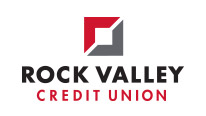Mid-year Money Check Up: Three Ways to Refine and Set Mid-year Financial Goals.
We understand that a mid-year review of your finances might not sound like an ideal way to spend part of your summer, but it truly is a great time to take stock of your situation. Given so much change like possible job losses due to the pandemic, volatility, and uncertainty in the markets, right now is an even more ideal time to give your finances a thorough check-up.
Staying on top of your personal finances during the pandemic may have been difficult – it was (and continues to be) a challenge for many Americans. Here are some tips to help you focus on key areas and be better prepared for the remainder of the year.
Make Specific Goals. If you made New Year's financial resolutions, how specific were they? Having a clear and more concise financial goal, rather than a general intention, will help set you up for better success. To get you started, think of new ways to save. Not watching Netflix as much anymore? Cancel the account. Overspending on a phone bill? Call your cell phone provider and negotiate a lower monthly payment. Constant Starbuck consumer? Forgo the daily Starbucks trips and use that to help pay off debt. The money you spend on a 5-dollar drink, 3-5 times a week can help offset credit card debt or help pay off a car payment faster.
Remember, don’t “set it and forget it.” Instead, stick with it! Check on your finances throughout the year, so you can avoid getting caught off guard. Automatic payments can be great, but only if you monitor them regularly. For example, if you committed to paying off credit card debt using an automatic payment method, but only set it to the minimum payment, it can end up taking decades to pay off. Instead, start small by paying five or more dollars above your minimum monthly credit card payment. Always remember, every little bit helps.
While we're talking about debt, it may be time for you to prioritize paying down significant debt while making small contributions to your savings. Once you've paid off your debt, you can then more aggressively build your savings by contributing the full amount you were previously paying each month toward debt.
Need help? Here are a few tips on how to pay off debt – while also saving money:
- Figure out your budget.
- Reduce your spending
- Stop using your credit cards and pay with cash
- Find a payoff method you'll stick with.
- Look into debt consolidation
- Know when to call it quits and know when to ask for help.
Save for a Rainy Day. You never know when a rainy day will spring into your life. That’s why it is always important to be prepared for anything. A rainy-day fund is a smaller cash reserve that is used for one-time emergencies. You don’t have to be wealthy to create a rainy-day fund. Ideally, your emergency account should represent 3-6 months of household living expenses. Also, think about setting up an automatic transfer from your checking to savings account. Rainy days are bound to happen. Be prepared sooner than later.
Plan for Your Future. Review your year-end financial deadlines, such as flexible spending accounts for healthcare where you forfeit a balance if not spent by Dec. 31, or your charitable giving that must take place before the end of the year. Calculate how much you have spent to-date in 2021, so you can strategically plan your spending or giving for the remainder of the year, rather than make rash decisions late in December when the clock is ticking.
Consider Christmas in July – start saving now so you are not strapped for cash when it comes shopping time. Save for college – it’s never too early to start saving for your kids’ education! Take initiative now, so that you can relax later.
Need more help? The Rock Valley Credit Union team is here to help guide you toward setting your financial goals. For more information, schedule a free consultation by reaching out to our Member Contact Center using our chat feature during regular business hours, complete our online form or call (815) 282-0300.


